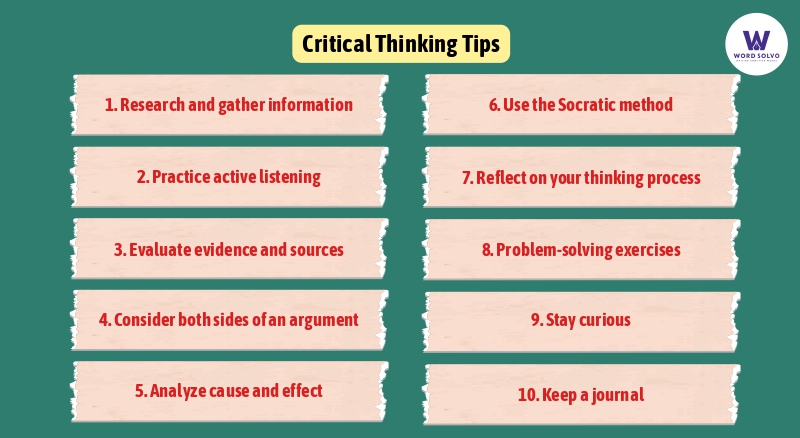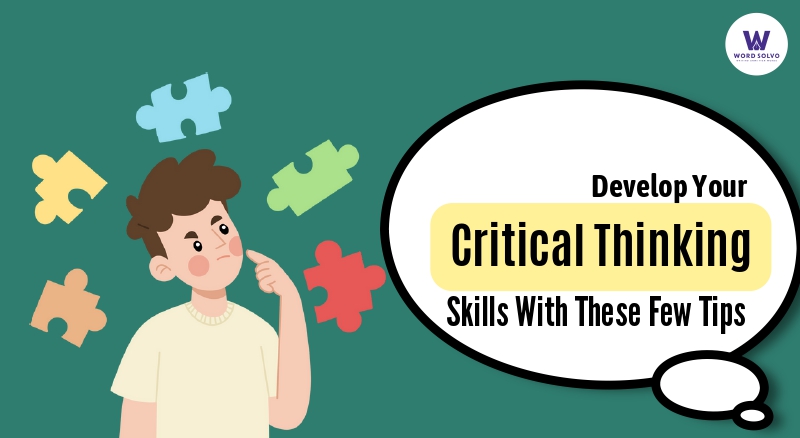With the sheer volume of information available today with the advent of globalization, the risk of swaying away from information is common. Critical thinking skill is an important skill for students since it not only helps students to better evaluate, analyze and solve complex problems related to assignments but also prepares them for future job scenarios.
Follow our few tips to get ahead of developing your critical thinking skills game.
1. Question Assumptions
Skills of critical thinking are related to questioning beliefs and assumptions because it gives an individual the power to critically evaluate values, belief systems seek diverse viewpoints:
Engage with people who have different opinions, backgrounds, and experiences. Listening to diverse viewpoints can help you better understand issues and refine your critical thinking.
2. Research and Gather Information
Gather relevant information from reliable sources before forming an opinion or making a decision: Analyze data, research studies, and expert opinions to build a solid foundation for your thinking.
3. Practice Active Listening
When engaging in discussions or debates, actively listen to what others are saying. This means giving them your full attention, asking clarifying questions, and avoiding interrupting. Active listening can help you fully understand different perspectives and arguments.
4. Evaluate Evidence and Sources
Assess the credibility and reliability of the sources you use. Be aware of biases, potential conflicts of interest, and the quality of evidence presented. Peer-reviewed research, reputable news outlets, and expert consensus are good sources to rely on.
5. Consider Both Sides of an Argument
Deliberately examine opposing viewpoints to your own. This can help you identify weaknesses in your arguments and refine your thinking. Consider what evidence supports the other side and how it relates to your position.
6. Analyze Cause and Effect
Consider the cause-and-effect relationships in various situations. Understand how different factors influence outcomes and how changing one variable can impact the overall result.

7. Use the Socratic Method
The Socratic method involves asking a series of probing questions to explore the depths of an issue. By asking "why" and "how" questions, you can uncover underlying assumptions and arrive at more thoughtful conclusions.
8. Reflect on your Thinking Process
Regularly reflect on your own thought processes and identify areas where you may be prone to cognitive biases or shortcuts. Awareness of these biases can help you overcome them.
9. Problem-solving Exercises
Engage in critical thinking exercises and problem-solving activities. These can include puzzles, brainteasers, and hypothetical scenarios that challenge your ability to analyze and come up with solutions.
10. Stay Curious
Cultivate a curious mindset. Be open to learning and exploring new ideas, even those outside your comfort zone. Curiosity fuels critical thinking by driving you to seek out information and question the status quo.
11. Keep a Journal
Maintain a journal where you record your thoughts, ideas, and observations. This can help you track your thought processes, identify patterns, and improve your critical thinking over time.
Remember that critical thinking is a skill that improves with practice and continuous self-reflection. By consistently applying these tips, you can enhance your ability to think critically and make better-informed decisions.

